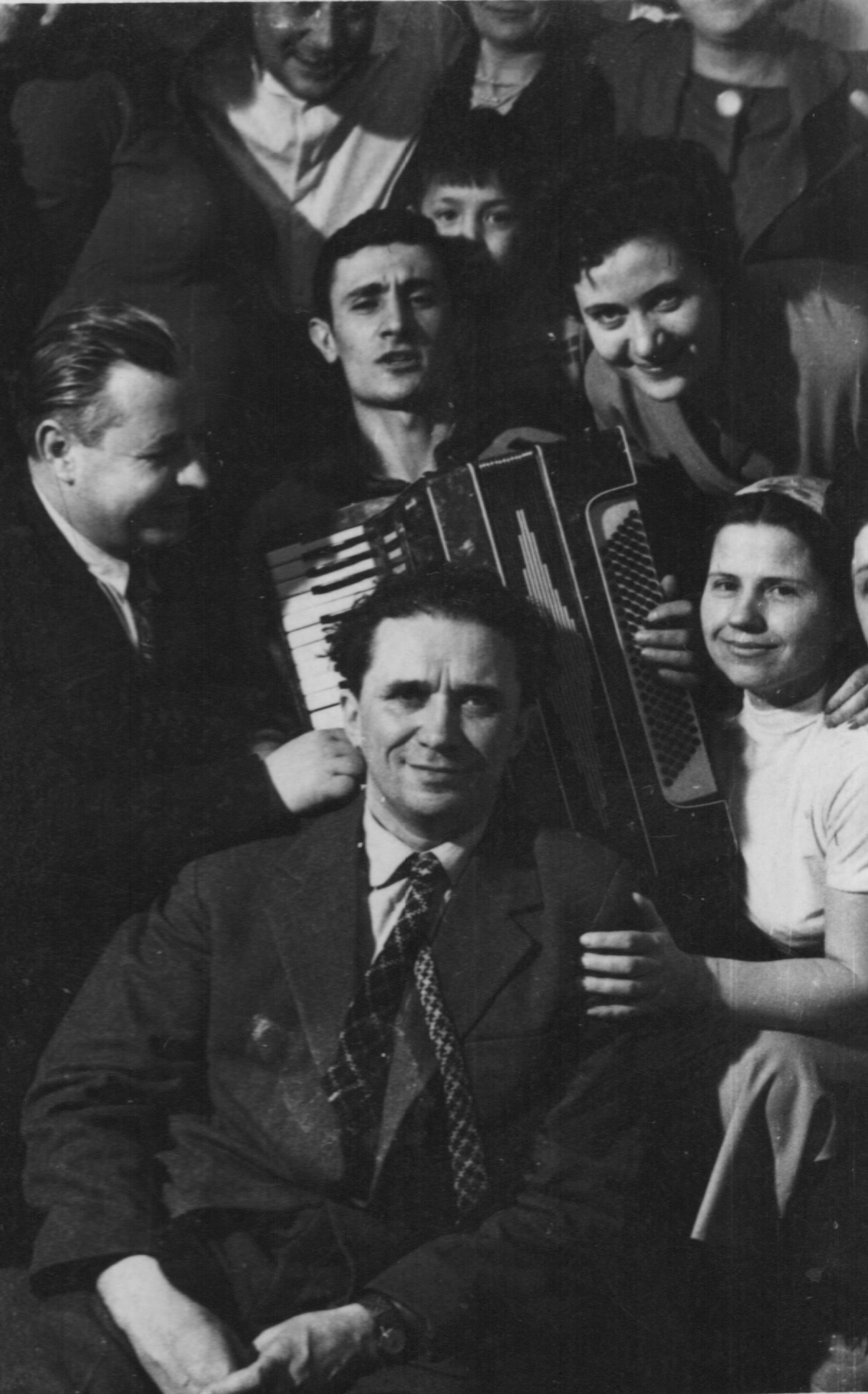The collection mainly consists of oral interviews and archival documents, which the collector Petru Negură has systematically gathered as a result of his research interests. The first type of collection items consists of oral history interviews conducted with a series of prominent Moldovan writers active during the Soviet period, including notably the following persons: Alexei Marinat, Aureliu Busuioc, Ariadna Salari, Ihil Sraibman, and Baca Deleanu (the widow of Liviu Deleanu). These interviews centre on memories related to Moldovan writers during the Soviet period and their milieu, alternative cultural practices, ways of socialising, and everyday life issues. This corpus of collected memories from the Soviet era represents a valuable source for the historical reconstruction of that period and an indispensable companion to the written sources. These are in-depth research interviews, conducted after a thorough research into these writers’ life trajectories and careers. The interviews conducted by Petru Negură are “life stories,” i.e. complex investigations of the subjects’ own perceptions of their life choices and professional evolution. Most of the interviews focus on the subjects’ educational background, life-changing or traumatic experiences that shaped their values and worldview, their personal attitude toward state power and its perceived impact on their field, their position within the conflicts and debates dominating the post-Stalinist period, together with their everyday practices, informal networks, and their connections to their peers. For example, the interview with Liviu Deleanu’s widow, Baca Deleanu, allowed Petru Negură to go far beyond the information available in the written sources and provided a unique glimpse into the dynamics of the writers’ community in the 1960s. The case of Alexei Marinat is similarly significant in this respect (see Masterpiece 1).
The written sources of this collection consist of documents from a number of archival repositories, which are notorious for the restrictions on access to their holdings. The collector Petru Negură was among the few researchers who had privileged access to these documents during the short window of opportunity opened in 2010 by the functioning of the Presidential Commission for the Study and Evaluation of the Communist Regime in Moldova. As a member of this commission, Negură collected photocopies of as many documents related to his research interests as possible, and these are worth mentioning as part of his collection, for this practically represents the only available path towards consulting them. The most important among the repositories which provided documents for the current Petru Negură Collection is the Archive of Social-Political Organisations of the Republic of Moldova (AOSPRM). Its significance is due to the number of documents extracted by the collector, as well as to the fact that this archive covered the whole institutional network of the MSSR party organisations, including professional unions, educational institutions, local branches of the party apparatus etc. Another notable source of the collection is the Archive of the Moldovan Writers’ Union (MWU), preserved in the Mihail Kogălniceanu Museum of Romanian Literature. This fund mostly covers various meetings within the MWU (general assemblies, party meetings etc.). Another archive consulted by Petru Negură, in his capacity as a member of the Commission for the Study and Evaluation of the Communist Regime, was the Archive of the Intelligence and Security Service of the Republic of Moldova (ASISRM), formerly the KGB Archive. The collection includes a number of personal files concerning Soviet Moldovan writers. Other significant archival sources for the collection are the National Archive of the Republic of Moldova (ANRM), from which the collection owner selected files produced by the Soviet Moldavian government (Council of Ministers), and the Russian State Archive of Literature and Art (RGALI) in Moscow. Finally, the Petru Negură Collection also holds some files from the Russian State Archive of Social-Political History (RGASPI), mainly dealing with the links between the Moldovan Writers’ Union and the central institutions in Moscow, as well as writers’ personal files. These documents were mostly produced by the Agitation and Propaganda Section of the Central Committee of the CPSU.

